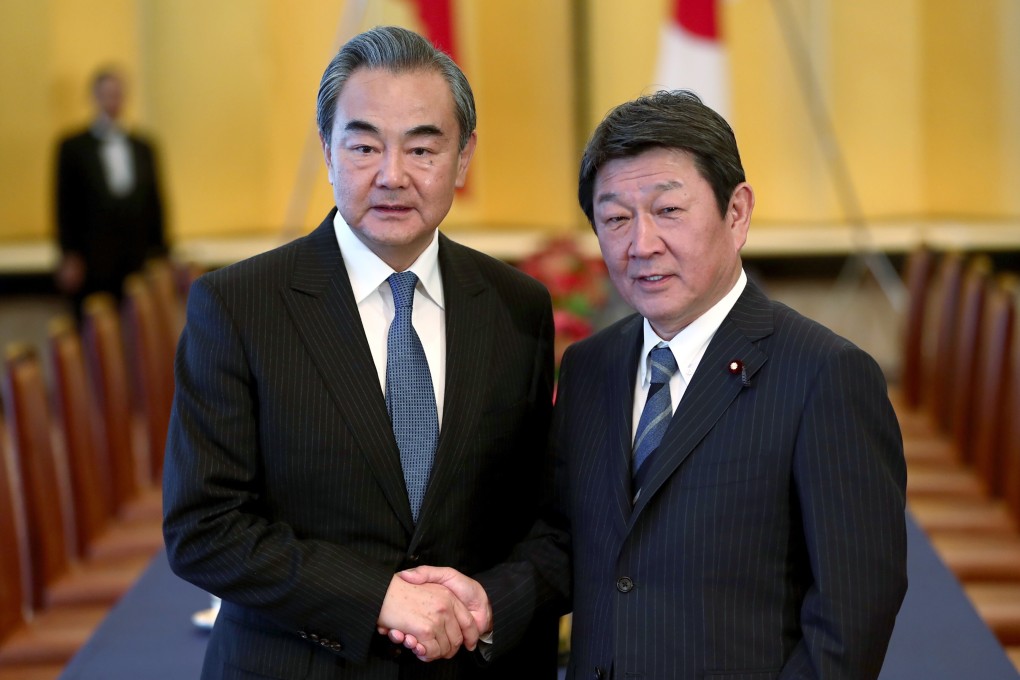Advertisement
China’s Wang Yi heads to Tokyo to ‘test the waters’ with Japan PM Yoshihide Suga
- Beijing wants to assess if Japan’s new leader shares ex-PM Shinzo Abe’s position on containing China, analysts say
- Wang Yi’s Tokyo trip comes as Japanese perceptions of China decline but survey respondents from both sides want to build better bilateral ties
Reading Time:4 minutes
Why you can trust SCMP

Chinese Foreign Minister Wang Yi’s visit to Japan on Tuesday is widely seen by analysts as an attempt by Beijing to gain a deeper understanding of the new Japanese administration, and an opportunity for China to pull Japan closer into its embrace given current uncertainties surrounding American foreign policy.
But the visit is also unlikely to dilute major differences between the two regional powers, analysts noted, adding that it was uncertain whether Wang could nail down a date for Chinese President Xi Jinping’s much-delayed trip to Japan.
Wang will be the first high-ranking Chinese official to hold talks with Prime Minister Yoshihide Suga since the former chief cabinet secretary took office in September, and the first to visit Japan since Politburo member Yang Jiechi, one of China‘s top diplomats, in February.
Kazuto Suzuki, a professor of international political economy at the University of Tokyo’s Graduate School of Public Policy, said Wang wants “to test the waters” to find out how different Suga is compared with former Japanese prime minister Shinzo Abe.
Advertisement
Wang is likely to raise Japan’s Indo-Pacific strategy with Suga to assess if the new prime minister shares Abe’s views on containing China, Suzuki added. In recent weeks, the Free and Open Indo-Pacific Strategy – which is being pushed by Japan, the US, Australia and India as the centrepiece of their Quadrilateral Security Dialogue, or Quad, and is aimed chiefly at countering China in the region – has gained momentum, especially since foreign ministers from the four countries met last month in Tokyo.
Wang is also expected to push forward a trilateral free-trade agreement between Beijing, Tokyo and Seoul during his trip, which includes a stop in South Korea. The trip comes on the heels of the signing of the world’s biggest free-trade pact, the Regional Comprehensive Economic Partnership, by 15 Asia-Pacific economies, led by China and Japan.
Advertisement
Yoshikazu Kato, an adjunct associate professor at the University of Hong Kong’s Asia Global Institute, said Wang’s visit also gives Beijing the chance to ensure that its relations with Tokyo remain on an even keel given the ongoing uncertainties surrounding US-China relations.
Advertisement
Select Voice
Choose your listening speed
Get through articles 2x faster
1.25x
250 WPM
Slow
Average
Fast
1.25x